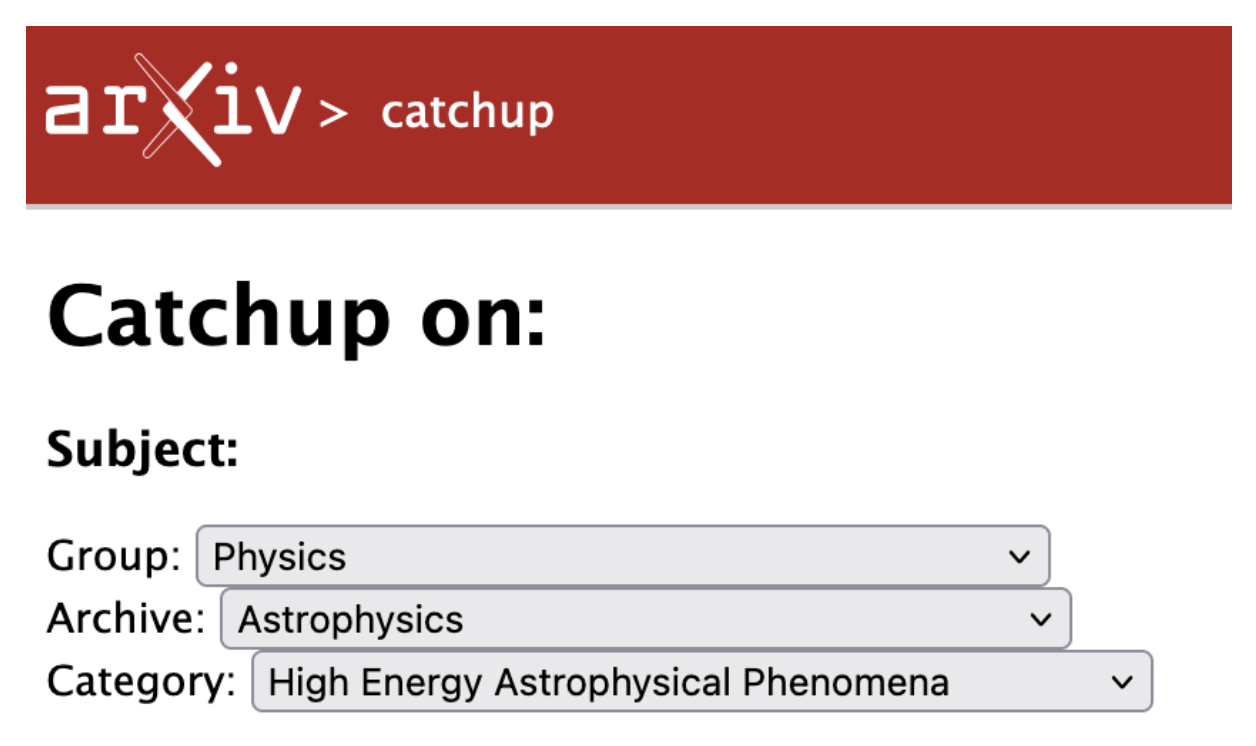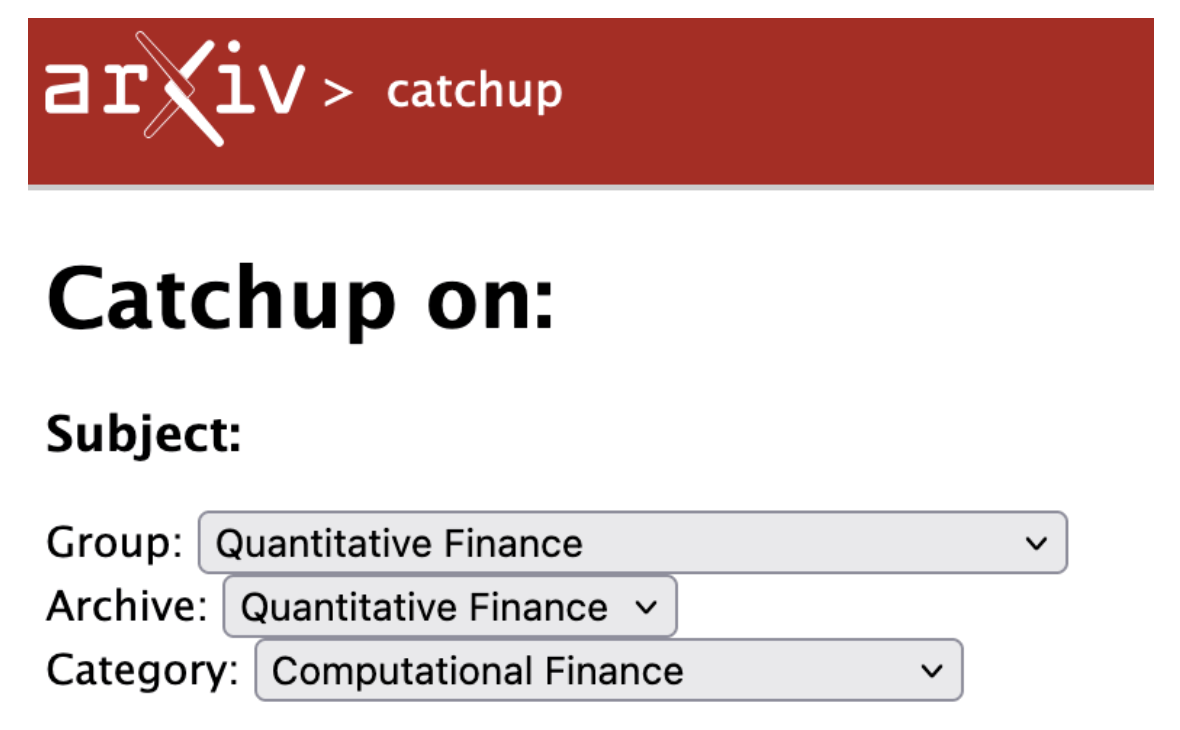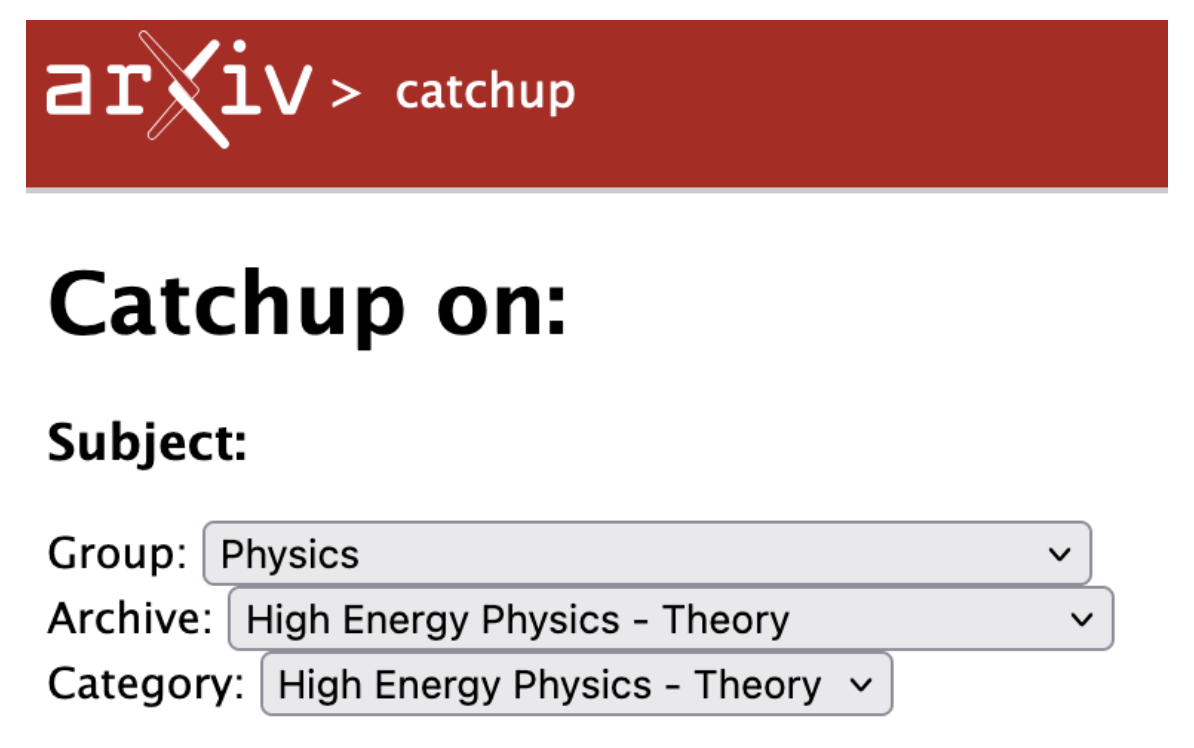arXiv Query Language
The arXiv search API enables filtering articles based on various fields such as "title", "author", "category", etc.
Queries follow the format {field_prefix}:{value}, e.g., ti:AlexNet.
The query language supports combining field filters using logical operators AND, OR, ANDNOT.
Constructing these queries manually presents two challenges:
- Writing syntactically correct query strings with abbreviated field prefixes
- Navigating numerous arXiv category identifiers
This repository provides a pythonic query builder to address both challenges.
See the arxiv documentation for the official Search API details.
See the arXiv Search API behavior section for API behavior details and caveats.
Installation
pip install arxivql
Query
The Query class provides constructors for all supported arXiv fields and methods to combine them.
Field Constructors
from arxivql import Query as Q
print(Q.title('word'))
print(Q.abstract('some words'))
print(Q.author("Ilya Sutskever"))
Multi-word field values are automatically double-quoted for exact phrase matching.
For ANY word matching, pass a list to the constructor:
Q.abstract(["Syntactic", "natural language processing", "synthetic corpus"])
For ALL words matching, pass a tuple to the constructor:
Q.abstract(("Syntactic", "natural language processing", "synthetic corpus"))
Note: All searches are case-insensitive.
Logical Operations
Complex queries can be constructed by combining field filters using regular python logic operators:
a1 = Q.author("Ilya Sutskever")
a2 = Q.author(("Geoffrey", "Hinton"))
c1 = Q.category("cs.NE")
c2 = Q.category("cs.CL")
q1 = a1 & a2 & c1
q2 = (a1 | a2) & (c1 | c2)
q3 = a1 & ~a2
The following operations raise exceptions due to arXiv API limitations:
~a1
a1 | ~a2
Wildcards
Wildcards (? and *) can be used in queries as usual. See the arXiv Search API behavior section for more details.
Category Taxonomy
The Taxonomy class provides a structured interface for managing arXiv categories.
Basic usage:
from arxivql import Taxonomy as T
print(T.cs.AI)
print(Q.category(T.cs.AI))
print(Q.category(T.cs))
print(Q.category((T.cs.LG, T.stat.ML)) & Q.title("LLM"))
Note the wildcard syntax in archive-level queries (e.g., T.cs).
The Taxonomy class provides comprehensive category information:
category = T.astro_ph.HE
print("id: ", category.id)
print("name: ", category.name)
print("group_name: ", category.group_name)
print("archive_id: ", category.archive_id)
print("archive_name:", category.archive_name)
print("description: ", category.description)
The library also provides useful category catalog:
from arxivql.taxonomy import catalog, categories_by_id
print(len(categories_by_id.keys()))
print(len(catalog.all_categories))
print(len(catalog.all_archives))
print(Q.category(catalog.all_archives))
print(len(catalog.ml_broad))
print(Q.category(catalog.ml_broad))
print(len(catalog.ml_karpathy))
print(Q.category(catalog.ml_karpathy))
Usage with Python arXiv Client
Constructed queries can be directly used in python arXiv API wrapper:
import arxiv
from arxivql import Query as Q, Taxonomy as T
query = Q.author("Ilya Sutskever") & Q.title("autoencoders") & ~Q.category(T.cs.AI)
search = arxiv.Search(query=query)
client = arxiv.Client()
results = list(client.results(search))
print(f"query = {query}")
for result in results:
print(result.get_short_id(), result.title)
Important arXiv Search API Behavior
-
Category searches consider all listed categories, not only primary ones.
-
arXiv supports two wildcard characters: ? and *.
? replaces one character in a word* replaces zero or more characters in a word- They don't match the first character of the term, i.e.,
au:??tskever fails, but au:Sutske??? is okay
- Categories can also be "wildcarded", i.e.,
cat:cs.?I is a valid filter
? and * can be combined, e.g., cat:q-?i* is valid and matches both q-bio and q-fin
-
Quoted items imply exact sequence matching:
- For text fields, this means standard phrase matching
- For categories, order matters:
cat:"hep-th cs.AI" differs from cat:"cs.AI hep-th". Article categories are ordered in arXiv API.
- Queries like
cat:"cs.* hep-th" or cat:"cs.*" return no results as they search for literal category names, and, e.g., literal cs.* category does not exist.
- Double quotes are special characters and should be carefully handled. E.g.,
""" finds nothing, and ""2""" is equivalent to "2" and 2.
- This library raises exceptions for most such problematic queries.
-
Spaces between terms or fields imply OR operations:
cat:hep-th cat:cs.AI equals cat:hep-th OR cat:cs.AI
-
Parentheses serve two purposes:
- Grouping logical operations
- Defining field scope, e.g.,
ti:(some words) treats spaces as OR operations.
Examples:
cat:(cs.AI hep-th) matches articles with either categorycat:(cs.* hep-th) functions as expected with wildcards
-
Explicit operators in field scopes are supported:
ti:(some OR words) and ti:(some AND words) are valid
-
The id_list parameter (and legacy id: field filter) in the arXiv Search API is used internally to filter over the "major" article IDs (2410.21276), not the "version" IDs (2410.21276v1).
- When used with a non-empty query:
arxiv.Search(query="au:Sutskever", id_list=["2303.08774v6"])
arxiv.Search(query="au:Sutskever", id_list=["2303.08774"])
- BUT if the query is left empty,
id_list and id: can be used to search for the exact article version:
arxiv.Search(id_list=["2303.08774"])
arxiv.Search(id_list=["2303.08774v4"])
arxiv.Search(id_list=["2303.08774v5"])
arxiv.Search(id_list=["2303.08774v99"])
arXiv Categories Taxonomy
The arXiv taxonomy consists of three hierarchical levels: group → archive → category.
For complete details, consult the arXiv Category Taxonomy and arXiv Catchup Interface.
Category
Categories represent the finest granularity of classification.
Category identifiers typically follow the pattern {archive}.{category}, with some exceptions noted below.
Example: In astro-ph.HE, the hierarchy is:
- Group:
Physics
- Archive:
Astrophysics
- Category:
High Energy Astrophysical Phenomena
- Queryable ID:
astro-ph.HE

Group
Groups constitute the top level of taxonomy, currently including:
- Computer Science
- Economics
- Electrical Engineering and Systems Science
- Mathematics
- Physics
- Quantitative Biology
- Quantitative Finance
- Statistics
Archive
Archives form the intermediate level, with each belonging to exactly one group.
Special cases:
Note: The Physics group contains a Physics archive alongside other archives, which may cause confusion.






